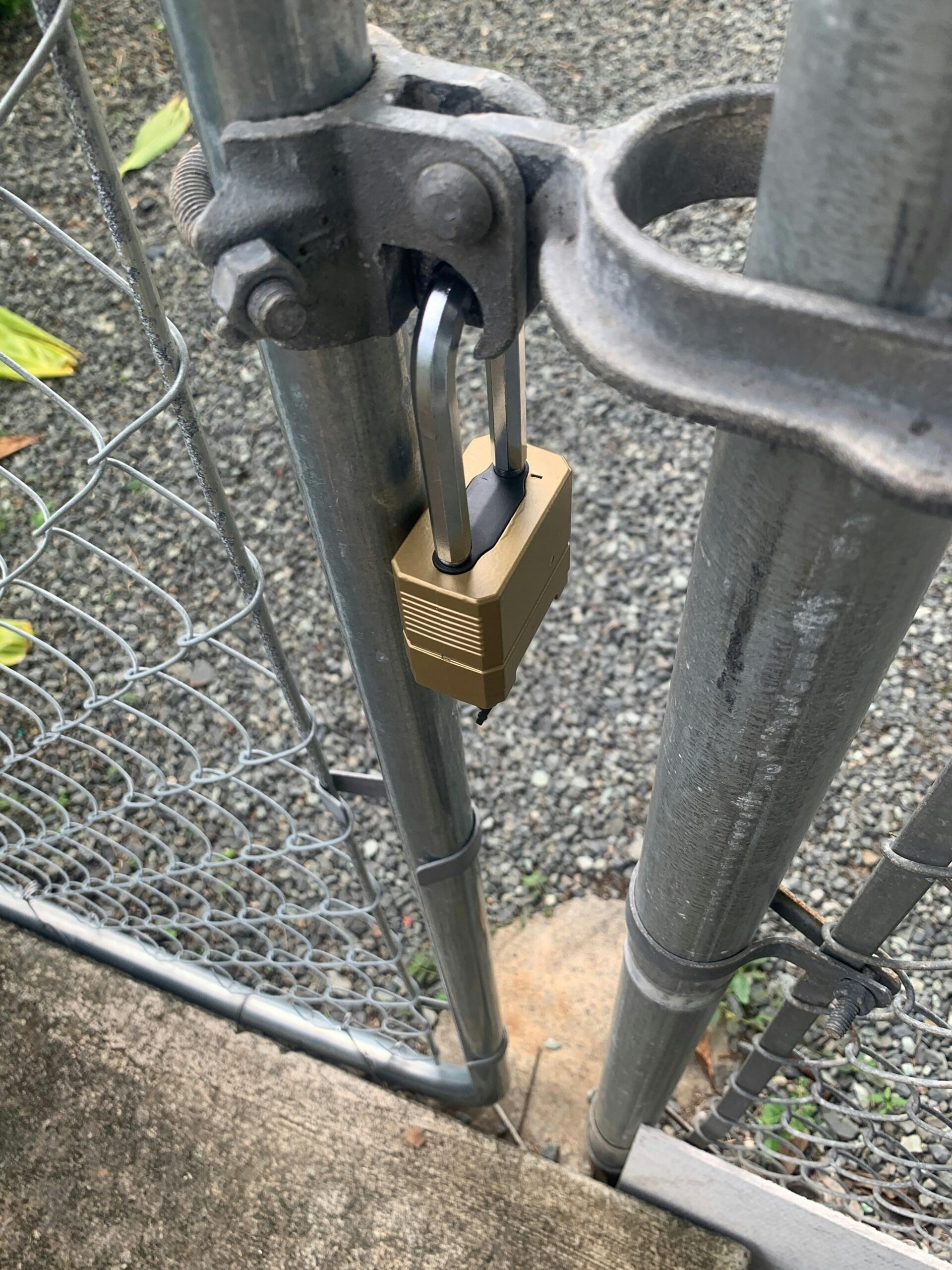When it comes to the security of your home or business, the question of whether to change your locks entirely or simply rekey them is more common than you might think. Both options offer distinct advantages and suit different situations, but making the right choice can sometimes feel confusing. Should you invest in brand-new locks for peace of mind, or is a quick rekey enough to keep your property safe? In this article, we’ll explore the differences between changing locks and rekeying, helping you unlock the best solution tailored to your needs.
Table of Contents
- Understanding the Key Differences Between Lock Changes and Rekeys
- When to Opt for a Lock Change for Maximum Security
- Cost Considerations and Time Factors in Rekeying vs Replacing
- How to Assess the Condition of Your Locks Before Making a Decision
- Professional Tips for Choosing the Right Locksmith Service
- Q&A
- To Conclude
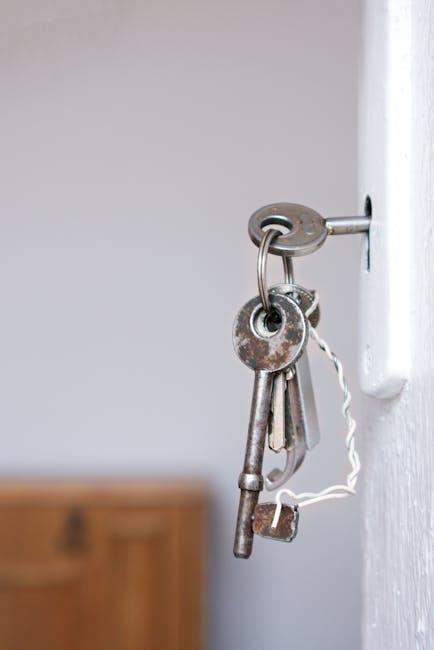
Understanding the Key Differences Between Lock Changes and Rekeys
When deciding between a lock change and a rekey, it’s important to understand that these two options serve very different purposes. A lock change involves removing the entire lock mechanism and replacing it with a brand-new one. This is often necessary when the lock is damaged, outdated, or if you want to upgrade your security with advanced features like keyless entry or smart locks. On the other hand, a rekey keeps the existing lock hardware intact but alters the internal pins so that the old keys will no longer work, effectively rendering lost or stolen keys useless without the expenses of a full lock replacement.
Considering factors like cost, urgency, and security needs can help you make the right choice. Here’s a quick comparison:
| Aspect | Lock Change | Rekey |
|---|---|---|
| Cost | Higher | Lower |
| Time | Longer installation | Quick process |
| Security Upgrade | Yes, new technology possible | No, retains old hardware |
| Best For | Damaged locks, home sales, upgrades | Lost keys, new tenants, misplaced copies |
- Lock changes provide a fresh start with new locks and keys, eliminating any risk associated with old hardware.
- Rekeying is ideal if your locks are still in good condition and you just want to control who has access by nullifying old keys.
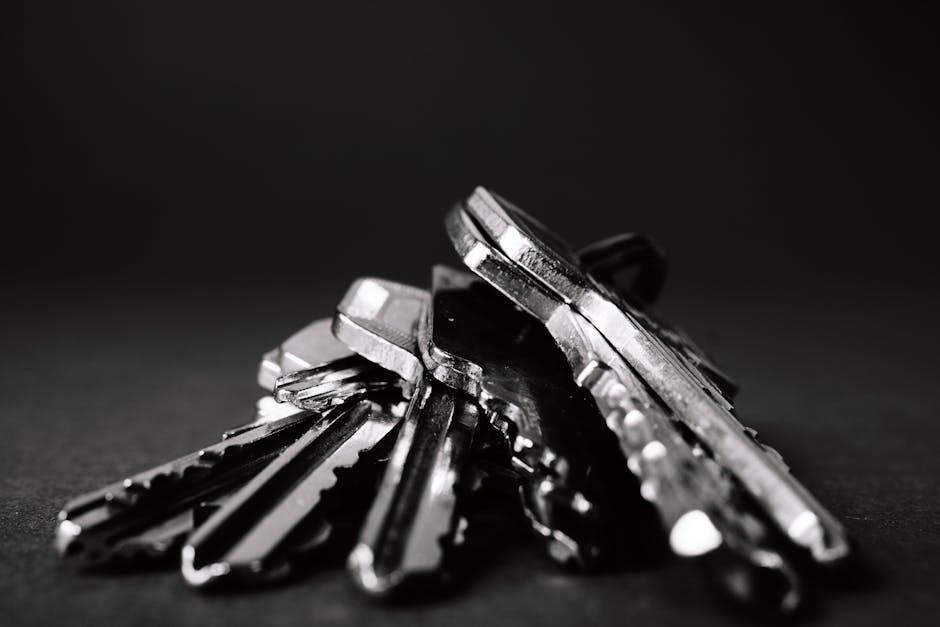
When to Opt for a Lock Change for Maximum Security
When your security might be compromised beyond a simple key swap, it’s critical to consider a full lock replacement. For instance, if your lock is damaged, outdated, or has been subjected to multiple failed break-in attempts, installing a new lock ensures a stronger defense against potential intruders. Additionally, if you’ve recently moved into a new home and the previous owner’s keys are unaccounted for, or if you’ve lost your keys and suspect they might fall into the wrong hands, a complete lock change offers peace of mind that rekeying alone cannot provide.
Opting for a lock change is advisable in these scenarios:
- Locks are visibly worn or tampered with
- You want to upgrade to higher-security lock systems
- Previous tenants or employees may still have access
- You’ve experienced a burglary or attempted break-in
| Situation | Recommended Action |
|---|---|
| Lost or stolen keys | Lock change |
| Old or damaged locks | Lock change |
| Simple key duplication concerns | Rekey |
| Multiple users with unauthorized access | Lock change |
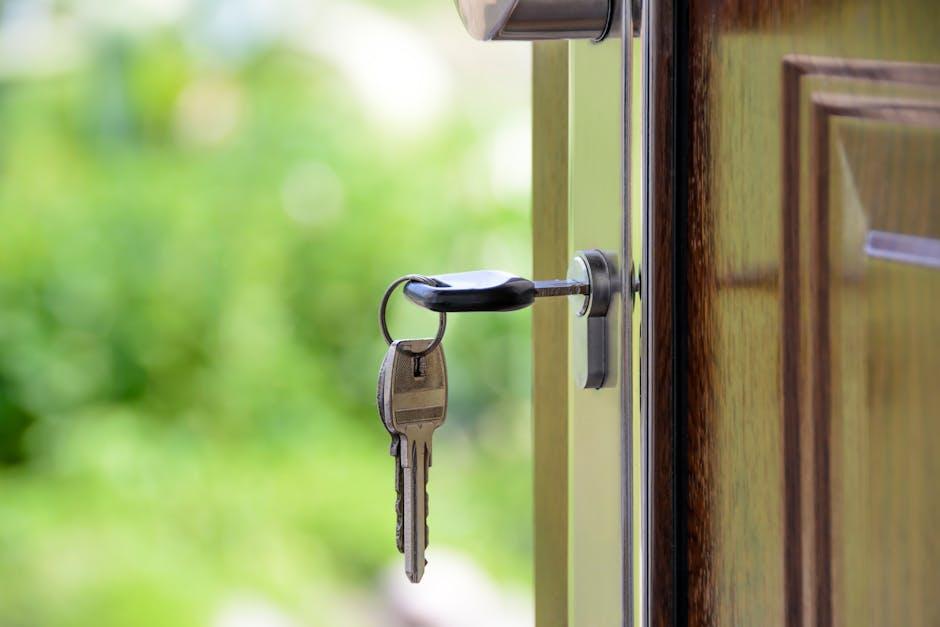
Cost Considerations and Time Factors in Rekeying vs Replacing
When weighing your options between rekeying and replacing locks, cost often becomes a significant deciding factor. Rekeying generally presents a more budget-friendly approach, as it involves altering the internal mechanism of your existing lock to fit a new key. This means you keep your current hardware while enhancing security. On the other hand, replacing the lock requires purchasing new hardware and often entails higher labor costs, especially if the new lock has advanced features or requires additional installation work. Keep in mind, though, that investing more upfront in a complete lock replacement can offer long-term benefits such as improved durability and upgraded security technology.
Time efficiency is another critical consideration when making this choice. Rekeying typically can be completed quickly-sometimes within an hour-making it an ideal option for immediate security concerns with minimal disruption. Conversely, replacing locks may take longer, as it involves removing old hardware, fitting the new lock, and ensuring proper alignment and functionality. This process could extend to a few hours or more, depending on the complexity of the lock type. Check the table below to see a quick comparison of typical time and cost factors:
| Factor | Rekeying | Replacing |
|---|---|---|
| Average Cost | $20-$50 | $80-$200+ |
| Time Required | 30 minutes to 1 hour | 1 to 3 hours |
| Hardware Needed | None (existing lock retained) | New lockset required |
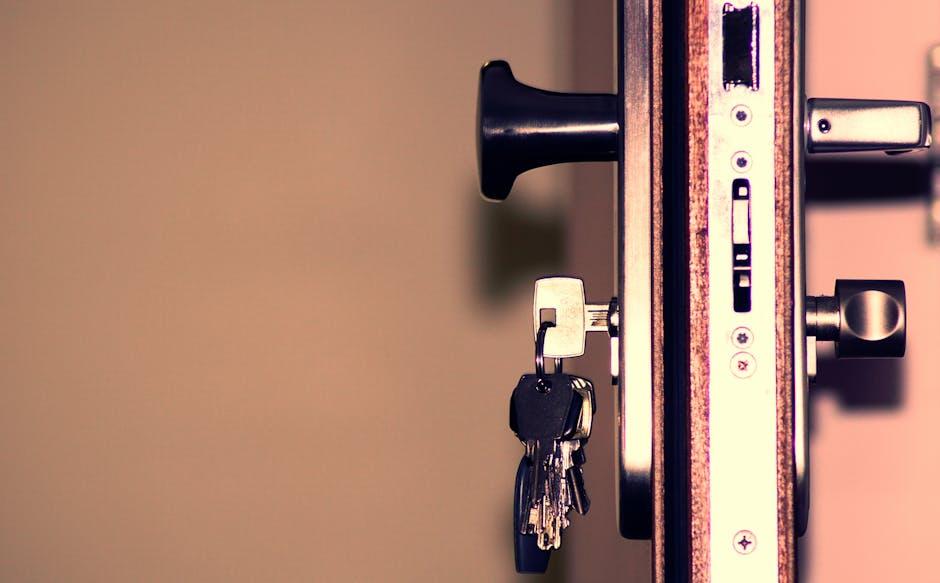
How to Assess the Condition of Your Locks Before Making a Decision
Begin by closely examining how your lock functions in daily use. Check for signs of wear and tear, such as keys that stick, difficulty turning the lock cylinder, or unusual noises when locking and unlocking. Consider whether the lock shows corrosion or rust, which can affect security and durability. Evaluate if the lock feels sturdy or loose; a wobbly lock might indicate a compromised mechanism that could justify a full replacement rather than a simple rekey.
Next, assess your current security needs relative to the lock’s condition and age. Here are essential factors to keep in mind:
- Age of the lock: Older locks may have outdated designs vulnerable to picking or bumping.
- Key control: If you’ve lost keys or worry about unauthorized copies, rekeying can be a quick and effective remedy.
- Lock quality: High-quality locks often perform well longer and may just need rekeying, while cheap models might require replacement.
| Lock Condition | Recommended Action | Reason |
|---|---|---|
| Mechanical issues, sticking | Replace | Underlying wear or damage affects security |
| Good physical condition, lost keys | Rekey | Maintains security without costly replacements |
| Outdated lock model | Replace | Modern locks offer better resistance to break-ins |
| High-quality lock, no damage | Rekey | Cost-effective and efficient for key control |
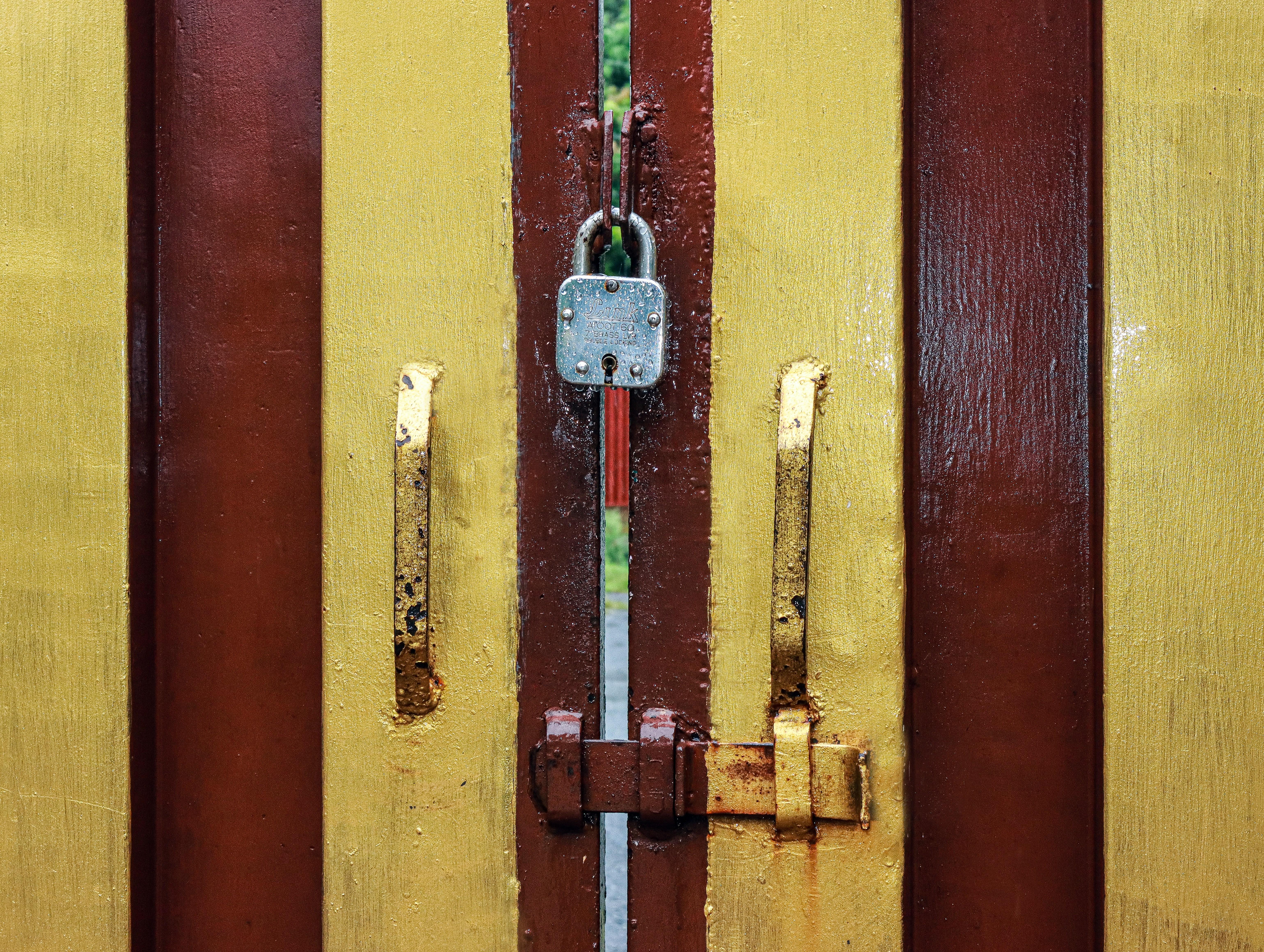
Professional Tips for Choosing the Right Locksmith Service
When selecting a locksmith, experience and credentials should top your list. Trustworthy professionals will have verifiable licenses, insurance, and excellent customer reviews. Don’t hesitate to ask for proof or request references to gauge their reliability. Additionally, look for a locksmith who offers transparent pricing upfront to avoid unexpected expenses. A well-rounded locksmith service will also provide a clear explanation on whether a lock change or rekeying is more suitable for your situation, guiding you to make an informed choice.
Consider the range of services provided by the locksmith; versatility is a hallmark of expertise. Some key services to consider include:
- Emergency lockout assistance
- Residential and commercial lock solutions
- High-security lock installations
- Key duplication and master key systems
- Digital and smart lock support
Choosing a locksmith who stays updated with the latest technology and security systems is crucial – especially as smart home devices become more common. Below is a quick comparison table to help you decide between a lock change and rekeying based on typical scenarios:
| Situation | Recommended Action | Reason |
|---|---|---|
| Lost or stolen keys | Lock Change | Ensures old keys no longer work |
| Moving into a rented home | Rekey | Cost-effective and secure |
| Damaged lock cylinder | Lock Change | Improves lock integrity |
| Want a single key for multiple locks | Rekey | Allows master key system setup |
Q&A
Q: When should I consider changing my locks instead of just rekeying them?
A: If your locks are old, damaged, or use outdated technology, a lock change is a smarter investment. Also, if you want to upgrade your home security or if your keys were stolen along with detailed information about your lock type, changing the entire lock ensures no unauthorized access.
Q: What exactly is rekeying, and how does it differ from changing a lock?
A: Rekeying means altering the internal pins of the lock so it works with a new key, while the lock hardware remains the same. Changing a lock means replacing the entire lock mechanism with a new one. Rekeying is generally less expensive and faster but doesn’t fix a physically worn or compromised lock.
Q: Is rekeying a secure option after losing my keys?
A: Yes! If you lose your keys or leave them somewhere unsafe, rekeying prevents anyone who finds the old keys from entering your home – but only if your lock is still in good condition. If your lock is outdated or damaged, changing may be safer.
Q: Can rekeying improve my home security?
A: Rekeying can improve security by restricting access to a new set of keys, especially if you recently moved into a new home or had multiple copies given out. However, it won’t add new security features; that’s something a lock upgrade or change can do.
Q: How do I know if my lock can be rekeyed?
A: Most standard pin-tumbler locks can be rekeyed, but deadbolts, electronic locks, or some high-security locks might require professional assessment. Consulting a locksmith can clarify if your current locks are compatible with rekeying.
Q: Which option is more cost-effective: changing locks or rekeying?
A: Rekeying generally costs less since it requires less hardware and labor. Changing locks involves purchasing new locks and possibly more installation work but can be worth it for enhanced security or replacing worn-out locks.
Q: How long does rekeying take compared to changing a lock?
A: Rekeying is usually quick – often under an hour per lock. Changing locks can take longer, depending on the number of locks, the type of locks chosen, and whether any door modifications are needed.
Q: Can rekeying be done by myself, or should I hire a professional?
A: While DIY rekeying kits exist, it’s recommended to hire a professional locksmith for reliability and security reasons. Incorrectly rekeyed locks can compromise your safety or damage the lock.
Q: What factors should influence my decision between rekeying and changing locks?
A: Consider the lock’s age and condition, your budget, your security needs, and the reason for changing keys (lost keys, moving, old lock). A professional assessment can help tailor the best option for your particular situation.
Q: If I want to upgrade to smart locks, does rekeying help?
A: If you’re switching to smart locks, you’ll need to change the locks entirely, as smart locks use completely different mechanisms. Rekeying applies only to traditional mechanical locks.
To Conclude
In the end, whether you opt for a lock change or simply a rekey depends on your unique needs, circumstances, and peace of mind. Rekeying can be a smart, cost-effective solution when you want to maintain your existing hardware but regain control over who holds the keys. On the other hand, a full lock change offers a fresh start-new mechanisms, new keys, and sometimes, enhanced security features that can provide added confidence in your home or business safety. By understanding the differences and weighing your priorities, you can make a choice that locks in both security and serenity. After all, the right decision should always leave you feeling safe behind every door.


